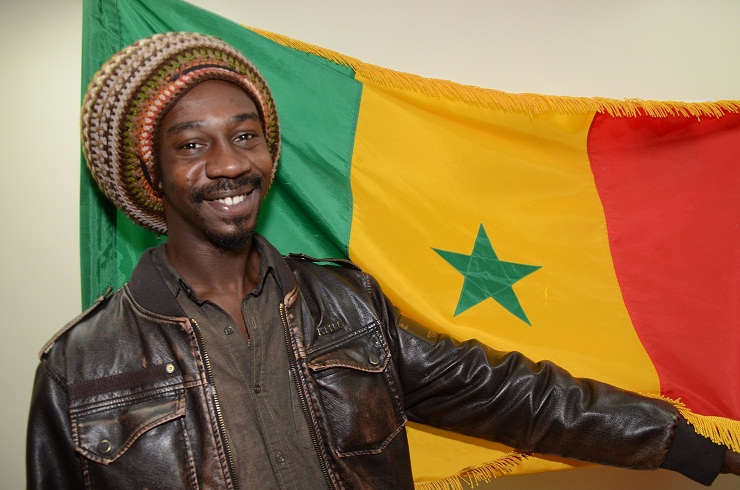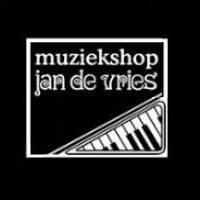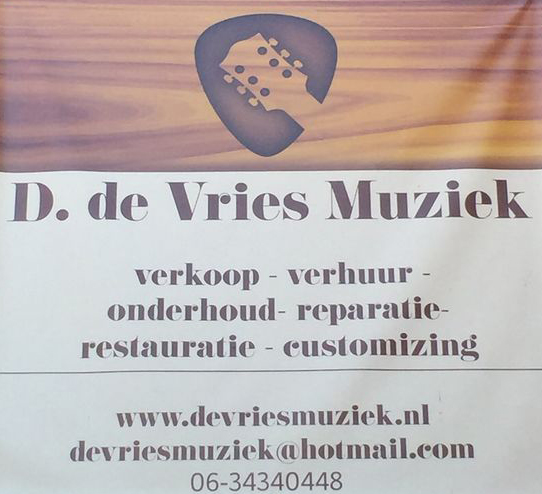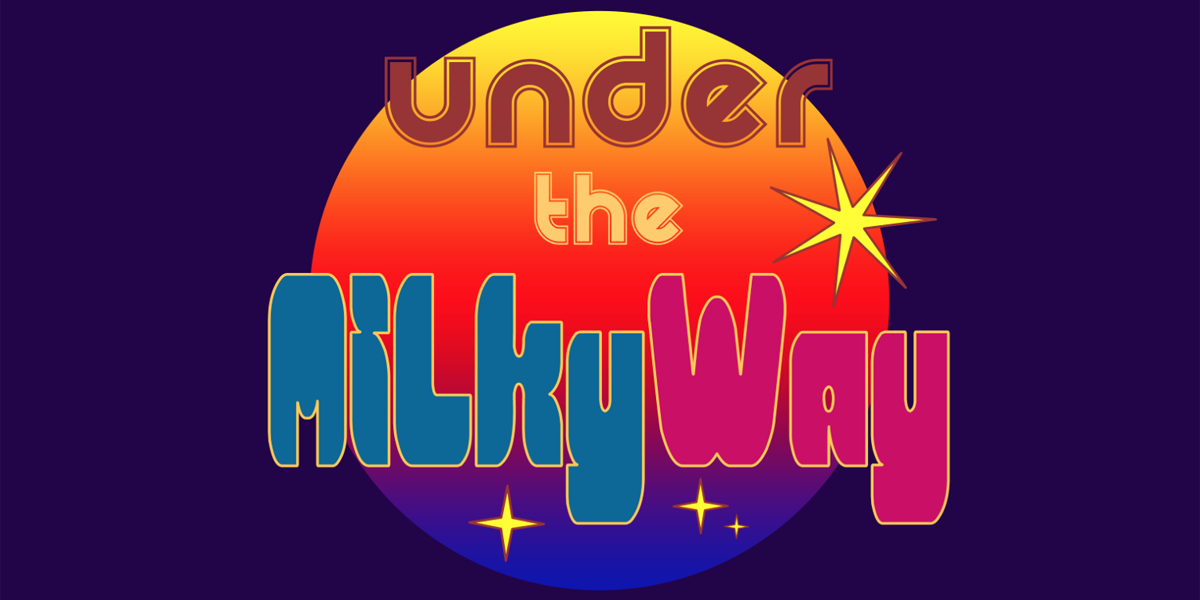On saterday the 28th of june Meta & The Cornerstones performed on stage at the Festival Mundial in Tilburg (Holland) and shared their positive vibe with a joyful audience. Check review.
 Meta & The Cornerstones is a roots reggae band formed around the talented Senegalese singer and musician Meta Dia who delivers his positive message of Peace, Love & Harmony worldwide. So far Meta & The Cornerstones released two successful albums, their debut album Forward Music and the widely praised successor Ancient Power. In the world of reggae Meta Dia’s talents are recognized for quite some time. The fact that even reggae icon en famous producer Lee “Scratch” Perry stated that ‘Meta & The Cornerstones have taken us back to the very foundations of reggae music’ is significant.
Meta & The Cornerstones is a roots reggae band formed around the talented Senegalese singer and musician Meta Dia who delivers his positive message of Peace, Love & Harmony worldwide. So far Meta & The Cornerstones released two successful albums, their debut album Forward Music and the widely praised successor Ancient Power. In the world of reggae Meta Dia’s talents are recognized for quite some time. The fact that even reggae icon en famous producer Lee “Scratch” Perry stated that ‘Meta & The Cornerstones have taken us back to the very foundations of reggae music’ is significant.
On the final day of Festival Mundial I meet up with Meta Dia. There we start talking and he immediately and kindly agrees to do an interview. But due to the fact that we are both great soccer fans and the game Holland – Mexico is about to begin we decide to watch the game together on the big screen – alongside a lot of international soccer fans – at the ‘main square’ of the festival. And we agreed on postponing the interview.
Eventually I meet Meta Dia the next day in Scheveningen, his base in Holland when he’s on tour in Europe. In a small café in that Dutch town we continue our conversation and I’m able to submit him to some questions.
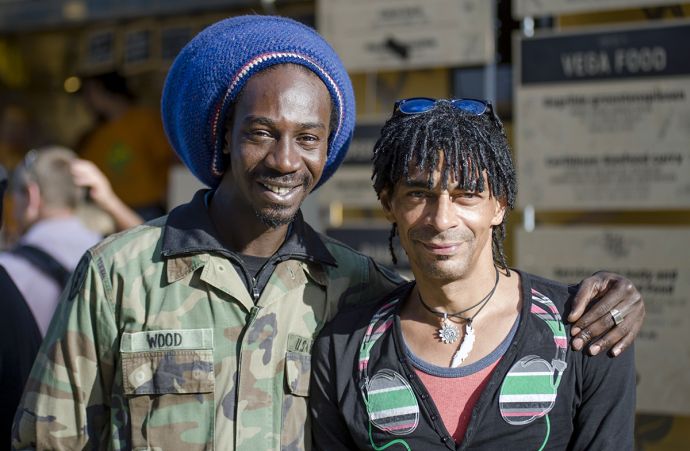
I attended your great show on stage at the Festival Mundial where you were able to share your positive vibes with the audience. Did you like it yourself? And what do you think of this festival?
“It was great. I loved it. It was a great audience too. Festival Mundial is a very nice festival with so many different genres and types of music. So many artists and bands from all over the world.”
We met on Sunday, the day after your show. Were you still on Festival Mundial because of obligations on Sunday as well. Or was this strictly for pleasure?
“We stayed in Tilburg for two days. We went to Festival Mundial on Sunday as well because it’s a great festival and we wanna check out some bands and meet people. I didn’t have any obligations on Sunday but I wanted to be there and see some bands play, like Dub Inc.”
Yeah, I noticed that at the end of their set you were invited on stage to do a song together. Do you know them?
Yes, I know the members of Dub Inc. They’re friends. Dub Inc is a great band from France. The song we did together was a spontaneous jam.”
You’re considered to be an important exponent of the new generation of reggae artists. In the world of reggae you’re already well know. However I think that the audience wants to know more about you as a person and as a musician. You’re from Senegal. What part of Senegal. Or which city?
“I’m from Dakar, the capital of Senegal. I’m born and raised there.”
At the Festival Mundial you told me that Senegal is a former French colony. And that there are many different languages of various and original tribes. What’s your background?
“Besides the big three languages French, English and Arabic there are a lot of tribal languages. I’m part Wolof and part Fulani.”
“I’m not from a musical family
More a nomadic family”
Your mother is Fulani? Or your father?
“My mother is Wolof and my father is Fulani.”

Are you a rastafarian? Or by any means religious?
“No, I don’t consider myself to be a Rastafarian. But it depends how you look at it. Rastafari is not a religion but a way of live. In that respect everybody is a Rastafarian. But I’m born and raised muslim.”
Is that the main religion in Senegal?
“No, in Senegal we have all kind of religions, like the three big religions Islam, Christianity and Judaism. In Senegal these religions are in harmony. We call that ‘Pack’. We also celebrate all religious hollidays.”
Are you from a musical family? When did you start making music?
“I’m not from a musical family but more from a spiritual and nomadic family. I started to sing spiritually at a young age. But in Senegal you get in touch with a lot of different types of music such as latin, salsa, bachata, Cuban music. All kinds of music actually. Also with popular Western music through MTV. Like soul, funk, pop and dico. But when hip-hop entered I felt immediately connected. It inspired us. From then on I started to write and play hip-hop music. I liked artists like MC Hammer, Grandmaster Flash, Public Enemy and Eminem. I’m a great fan of Eminem.”
“In Senagal I was strictly making hip-hop
I’m a big fan of Eminem and Obi Trice”
Alright, back then you didn’t do reggae at all?
“No, I didn’t do any reggae back then. It was strictly hip-hop. I only wrote and played hip-hop songs. Eventually I made my first hip-hop album with my group Yalla Suuren. The album was full of political lyrics. For that reason it got banned by the government and it never came out. I didn’t wanna go on like that so I decided to make my songs and lyrics less political.”
All this was still in Senegal?
“Yeah, this was still in Senegal. But I wanted to go to the United States more and more. I had a dream to go there because of hip-hop music. I wanted to make that kind of hip-hop. In addition we already did some kind of hip-hop in Senegal. We call that ‘Thasu’, to speak and rhyme fast. The only big difference was the typical slow-beat in Western hip-hop. After Yalla Suuren my lyrics were more about culture, family and personal subjects. Around 2000 I started to make serious music and we played in cities and villages all over Senegal.”
Eventually you moved to the United States. When? And where did you go to?
“It was my dream to go to the United States for a long time because of all the hip-hop I heard on MTV. I wanted to go there to make hip-hop. Finally I got the change to go there in 2001. I went to New York first. And later to Detroit, the city of one of my big heroes, Obi Trice. That was the reason for me to go to Detroit. And because of Eminem, who’s from the nearby city Seven Miles. After one and a half year I went back to New York.”
You still live in New York. Or anyway that’s your base because you tour most of the year. Do you ever get the change to go back to Senegal?
“Oh, yeah, whenever I get the change to go back to Senegal to visit my mother, family and friends, I go there. But after I went to the United States it took me eight years to go back.”
Initially you went to the United States to make hip-hop music. What can you tell us on that?
 “In the US at first I was strictly focused on making hip-hop music. But my English wasn’t that good at that time. It was hard to fully understand the reality and humor of some lyrics. That made it hard for me to sing raw and bold lyrics. I didn’t really felt connected to some of the curse words often used in hip-hop. But after listening to hip-hop and rappers like Mos Def and Nas I knew that I could make my lyrics more friendly and positive.”
“In the US at first I was strictly focused on making hip-hop music. But my English wasn’t that good at that time. It was hard to fully understand the reality and humor of some lyrics. That made it hard for me to sing raw and bold lyrics. I didn’t really felt connected to some of the curse words often used in hip-hop. But after listening to hip-hop and rappers like Mos Def and Nas I knew that I could make my lyrics more friendly and positive.”
At a certain time you decided to shift more to reggae music. How come?
“Every Wednesday I played in a club of a Senegalese friend in New York. There I started to sing more and more. And in that club I met many other musicians, among them Toni Blackman and Sean Blackman. Sean is a great guitar player and I’m a big fan of him. I used to jam a lot with him and he told me I have a great voice and that I should sing more.”
“After hearing Coming In From The Cold by Bob Marley
I was devoted to reggae music”
From then on you strictly focused on reggae music?
“Well, when I heard the song Coming In From The Cold by Bob Marley I was certain which way to go. Even though I didn’t fully understand the lyrics at that time, I immediately felt so connected to that song. From then on I was devoted to make and sing reggae music myself. I started to study and learn English more and more. And started to write reggae songs. In 2008 my first album Forward Music was released.”
This was already with The Cornerstones?
“Yeah. And although my English still wasn’t that good, the album did well. The first single Struggle And Strife of the album Forward Music is part English and part Wolof. And Hasta La Vista got a lot of latin and salsa influences.”
Alright, from then on it all went pretty fast and you got noticed worldwide. Did you expect this so soon?
“No, not at all. I was very insecure about my English still. So I started to learn and study English even harder. But you’re right, from then on it went fast.”
Your band The Cornerstones consists of musicians from all over the world. They’re from Japan, Algeria, Israel, Jamaica and elsewhere. Where did you meet them and how did you get together?
“I played at a club in New York every Wednesday night. Besides hip-hop I started to play reggae more and more. One of the songs I did every week was Concrete Jungle by Bob Marley. A lot of musicians hang out in that club such as Adrian Djoman, Shahar Mintz, Andre Daniel and Ian Joseph. I got to know more and more musicians, including Daniel Serrato and Wayne Fletcher. And I started to play with them. Every Wednesday night I spotted a lady from Japan who played classical piano. I wanted her to play in my band as well. She’s really good. Aya Kato is part of The Cornerstones for many years now.”
 From your widely praised debut album on people love your music. And a lot of reggae artists wanted to work with you. What can you tell us about that?
From your widely praised debut album on people love your music. And a lot of reggae artists wanted to work with you. What can you tell us about that?
“That was really great. I was honored that so many great and famous reggae artists wanted to work with me. Among other things I did a remix of Somewhere In Africa with Peetah Morgan of Morgan Heritage.
On your latest album Ancient Power there are contributions by Damian Marley, Capleton, Peetah Morgan and U-Roy. How did this happen?
“At a certain point in time I got the news that Damian Marley wanted to work with me. At first I thought they were pulling my leg. This was great of course. With Damian Marley I recorded My Beloved Africa. With Capleton I did Tijanhi. And Rooftop with U-Roy. All of these songs are on Ancient Power, the album I recorded at the famous Tuff Gong Studios in Jamaica. This was really great too. The history of Tuff Gong Studios is tremendous. This is the Mekka of reggae music.”
Did you record Ancient Power with the Cornerstones?
“Well, with some of them. With the rhytm section at least. And with a lot of other musicians. Because besides those you mentioned earlier Julian Marley, Sydney Mills of Steel Pulse and others contributed as well. And I definitely wanted to work with U-Roy. He’s a great person and musician. I asked him to work with me. And I’m honored he did. I’m really proud of that.”
With wich other known reggae artists or bands did you work?
“I did some open shows in New York with Israel Vibration and Lee “Scratch” Perry. But also with Youssou N’Dour.”
By the way, do you know the film Rockers? The reggae film that became a cult-movie with among others Gregory Isaacs, Burning Spear, Jacob Miller, Kiddus I and Leroy ‘Horsemouth” Wallace, who plays the key role in the film?
“Yes, of course. I know that film. It’s absolutely great.”
Did you ever meet Winston Rodney, the frontman and singer of Burning Spear?
“No, I haven’t met him yet. I would love to. But I did meet Leroy ‘Horsemouth” Wallace in Jamaica.”
To my opinion the use of horns in rootsreggae – besides harmony – is a big added value. In your music you use horns as well. What’s your opinion on that?
“I totally agree. The horns are beautiful instruments. They’re really slick. It’s like an alarm, like a wake up call. But you have to know where to put them. They’re uplifting and really declare. Not only in reggae music but in all kinds of music.”
“To me reggae is spiritual, positive and uplifting
With a heartbeat of the drum & bass”
I’m not a lover of the militant reggae you often hear in raggamuffin or dancehall. We’ve talked about this already at the Festival Mundial. And you had some thoughts on that too.
“To me reggae music is spiritual music with positive lyrics and a heartbeat of the drum and bass. Reggae music is uplifting and relaxed. It’s about Peace, Love and Harmony. It shows you the beauty of life. To me reggae music is peaceful music with a positive power that makes the people feel good. Rootsreggae shows you the beauty of life. The creator is generous and provided us with so much beauty. It’s all there. Reggae music makes us aware of that and points out to all the beautiful things in life.”
So you don’t like militant reggae either?
“No, I don’t like reggae with violent lyrics in which people are degraded, humiliated and prosecuted. We shouldn’t judge on others, be narrow minded or dividing. Like I said, to me reggae music is peaceful music with a positive power. The lyrics should refer to the beauty of life. I don’t go by ‘Burn Down Babylon’. Like Africa is much more than Ethiopia. We’ve got a great history that’s all connected. History is part of us all and we’ve got to learn from it. We’ve got to acknowledge that and celebrate our past with a positive message to move forwards. There are no borders in my music, it’s the language of the soul. We should get together and love one another. It’s about Peace, One Love and Harmony. To me that’s what it is. That’s Reggae Music! “
